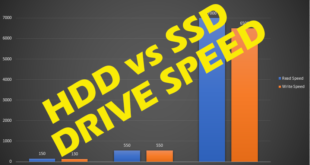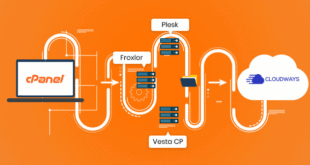Ensuring the reliability of your online business is absolutely crucial when you’re trying to build an established web presence and reputation. Dedicated hosting gives webmasters direct access to a private web server that is only used to service their websites and software needs. This is contrary to other hosting types like shared and VPS, which give the webmaster access to a predefined portion/partition, or a set amount of resources. Although dedicated servers are also limited in their technological capabilities because they are physical devices, it would take a lot to exhaust the computing power of one, and this is outside of the realm of possibility for most webmasters. Overall, this type of hosting is preferred by business professionals in comparison to less expensive and less reliable solutions. Consider the following 4 ways dedicated hosting improves the reliability of your online businesses:
Minimal Downtime
The dreaded downtime is the worst enemy of every hosting provider and webmaster because it results in inaccessible web pages and a complete halt in online business. Statistically, dedicated hosting plans consistently maintain the lowest amount of downtime out of any hosting type. With a fully managed plan your server is managed by IT professionals that use advanced monitoring applications to ensure optimal performance on an ongoing basis. If you’re conducting eCommerce at high volumes, even a few minutes of downtime can result in a loss in sales, and potential customers. Although most shared/VPS providers promise 99% uptime guarantees, many times they do not specify the amount of time the guarantee is valid for. In other words, are they promising that your site will be up and running 99% of the year, or 99% of the month, because there is a significant difference between the two. Ultimately, if you want the utmost in reliability and redundancy, you should choose a dedicated hosting solution.
Faster Page Loads/ Fewer Loading Errors
Since dedicated servers have more random access memory (RAM), disk space, and processing power, they’re able to accommodate more requests simultaneously. Not only are the servers themselves more capable than the hardware offered with a shared or VPS hosting plan, there are also no administrator-assigned limitations that keep your server from performing at a maximum level. Adversely, with a shared or VPS plan you’re limited on the number of server requests that can be processed within a certain period of time, even if the hardware is technically capable of handling it. As a result, dedicated hosting gives your sites faster loading times and prevents unnecessary errors caused by hosting limitations.
The Ability to Accommodate more Traffic
The aforementioned limitations can cause a problem for shared/VPS plan holders when their sites experience a sudden surge in traffic. This is unfortunate because traffic surges are supposed to be a good thing. However, hosting providers have to enable these limitations to ensure an equal quality of service for each client and keep one website from hogging resources from another in the shared server environment. On the other hand, a dedicated server will not deny service or stop serving pages due to a simple spike in traffic unless it is technologically incapable of handling the traffic level — this is extremely rare, and is usually only caused by DDoS (Distributed Denial of Service) hacking attacks. With the ability to accommodate higher traffic levels you can start focusing on expansion rather than worrying about having to scale up each time you reach a new limitation. Not only will you be able to accommodate higher traffic levels, you can also install advanced software that provides more insight into traffic analytics, and you can even use the server to perform testing on your own custom software development projects.
Server Administration Freedom
With a shared/VPS plan you don’t have the freedom to change certain server/script limitations that are put in place by the system administrator. Instead, you’ll have to request permission each time you want to exceed a predefined limitation. This can become a problem when you start to use CMS plugins and other automation tools to make your job as a webmaster easier. You’ll find that your pages are loading slowly, or errors are appearing in the administrative interface of your CMS that are preventing your extensions from working properly. With a dedicated plan you are essentially renting full remote access to an actual server, so you have the right to modify settings, install new software, set your own limitations, and push the performance of the server to the limit. In addition, with a fully managed dedicated hosting solution you also have the ability to request assistance from trained support staff, or leave the administrative duties up to the hosting company altogether. Unmanaged dedciat6ed hosting is only recommended for advanced users because it requires you to perform server maintenance and upgrades independently.
 Cheapest Linux VPS Home for Cheap Virtual Private Server
Cheapest Linux VPS Home for Cheap Virtual Private Server 


